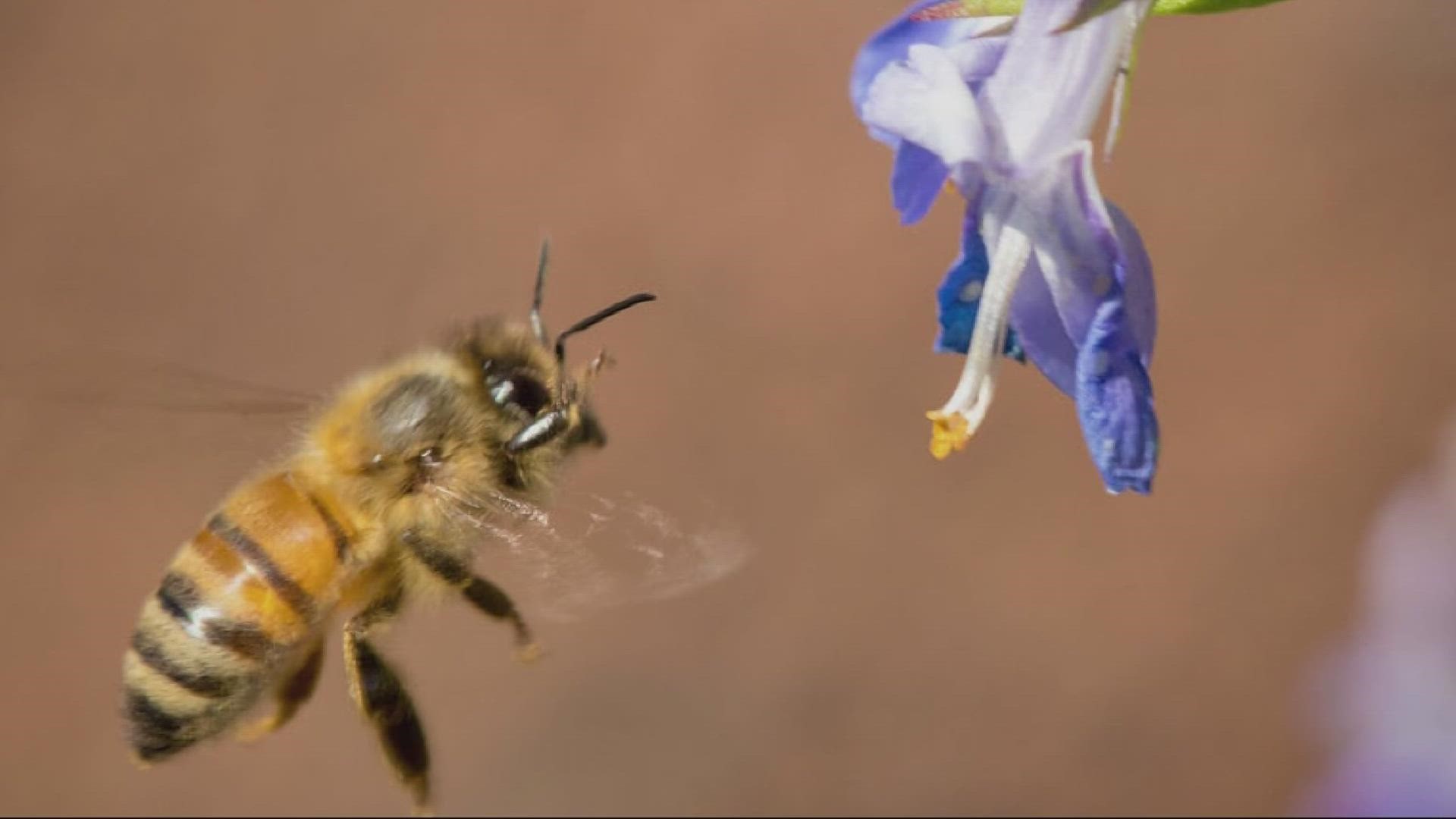EUGENE, Ore. — Up close, bees are beautiful creatures. There are quite a few varieties of them in the Pacific Northwest but they are in trouble. Their numbers are down.
In Oregon, a few types are on or headed for the Endangered Species Act list. That's a concern for University of Oregon assistant professor Lauren Ponisio.
“And so we want to know, how do we maintain and restore these declining bee populations, particularly for our food security but also because the west is actually a global hotspot of bee diversity,” said Ponisio.
The ecology professor and a team of graduate students have been working to sow the seeds of native plants in areas burned by wildfire, specifically where the Holiday Farm Fire tore through the McKenzie River Valley in 2020. It burned 174,000 acres and created a sort of blank canvas, where the tall fir trees once stood.
“A closed canopy forest is really quiet,” said Ponisio. “It doesn't have a lot of understory plants. It doesn't have wildflowers, but when you open up that canopy, we have all this potential for pollinators. And so we started planting these native plants in these areas and they do amazingly and they attract all sorts of pollinators from all varieties of bees, lots of bumble bees and butterflies.”


The team sowed about 20 varieties of wildflower seeds onto burn piles along a ridge overlooking the McKenzie River. Without growth competition, the plants flourished and the bees and other pollinators moved in— in a big way.
The result was less successful when they planted in clear cut areas nearby, where natural competition existed.
Either way, the work proved that at least until the trees return to create a forest canopy, these areas can be a place to jumpstart native plant growth to help pollinators thrive.
“It's the one thing I really know in my life is that when we put out diverse native plants there will be diverse native bees on these plants, no matter where we are,” said Ponisio.
The professor and her team will continue to monitor the progress on planted land, including years ahead as replanted forest trees grow a new forest. The group has also worked with foresters and is doing the same native seed sowing on Cascades forestland owned and logged by Weyerhaeuser.

